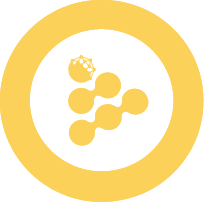🚀 What Is an iApp?
An iExec Application (iApp) is your regular application code (Python script, AI model, data processor) that can securely process protected data (created by DataProtector) inside a privacy-safe environment called TEE (a Trusted Execution Environment).
Why iApps Matter?
iApps let you process sensitive data while keeping it private and secure.
Imagine you want to build:
Users have this data, but they won't give it to your regular app. With iApps, they will.
How It Works
Your code runs in a Trusted Execution Environment (TEE) a secure area inside specific processors (Intel SGX/TDX chipset). Everything that happens there stays private and protected, even from the operating system.
An authorized user can trigger an iApp that processes someone's protected data inside this private environment. The data is used, but never exposed, not even to the person running the app.
iApp Generator: Your Development Tool
Bootstrap TEE-compatible applications in minutes without any hardcoding skills, iApp Generator handles all the low-level complexity for you.
- Access to TEEs easily - No need to dive into low-level requirements, build iApps that connect to TEE in minutes
- Check and deploy iApps quickly - iApp Generator checks that your iApp complies with the iExec Framework and streamlines its deployment
- Select your project mode & language - Select between basic or advanced setup depending on your iExec level experience. You also have the choice between Python or JavaScript
# Create your iApp (Python or Node.js supported)
iapp init my-sentiment-analyzer
cd my-sentiment-analyzer
# Develop and test locally (simulates TEE environment)
iapp test
# Deploy to the network
iapp deployNote: iApp Generator currently supports Python and Node.js, but iApps can be built in any language that runs in Docker.
Real Examples
Email Notification iApp
# User runs: "Send updates to my contacts about my project"
contacts = load_protecteddata() # User's protected contact list
for contact in contacts:
send_email(contact, project_update_message)
# → Emails sent directly, you never see the addressesOracle Update iApp
# User runs: "Update price oracle with my private trading data"
trading_data = load_protecteddata() # User's protected trading history
average_price = calculate_weighted_average(trading_data)
update_oracle_contract(average_price)
# → Oracle updated with real data, trading history stays privateAutomated Transactions iApp
# User runs: "Buy tokens when my portfolio meets certain conditions"
portfolio = load_protecteddata() # User's protected portfolio data
if should_buy_tokens(portfolio):
execute_trade(token_address, amount)
# → Trade executed based on private data, portfolio details stay hiddenThe Trust Model
Here's why users will actually use your iApp with their private data:
What Users See
- ✅ "This code runs in a secure enclave, not on the developer's servers"
- ✅ "My data gets used privately for actions I want"
- ✅ "Even iExec workers can't see my data during execution"
- ✅ "I can revoke access anytime"
What You Get
- ✅ Users willing to use your services with their sensitive data
- ✅ New business models around privacy-preserving analytics
- ✅ Competitive advantage through privacy guarantees
The Workflow
Nobody sees the raw data except your code running inside the secure enclave.
Your iApp can send emails, update contracts, make transactions, trigger notifications - anything your code needs to do with the protected data. This isn't about trust - it's about mathematical guarantees that privacy is preserved.
What This Enables
Private Communication
Users send emails, notifications, or messages using their protected contact lists without exposing recipient information.
Trustworthy Oracles
Users contribute real data to oracles while keeping their private information confidential.
Personal AI Assistants
Users let AI models perform actions based on their private data - trading, scheduling, recommendations.
Automated Actions
Users set up automated workflows that use their private data to trigger actions, transactions, or updates.
❓ Frequently Asked Questions
📦 What can I build with iApps?
Anything that runs in Docker! AI models, data processing scripts, web scrapers, image processing, financial calculations, etc. If it runs in a container, it can be an iApp.
⚡How fast are iApps?
Initial task scheduling takes ~30 seconds (depending on the resources the worker download, congestion etc), then your code runs at normal speed depending on complexity.
🛡️ Are iApps really secure?
Yes! Code runs in Intel SGX or TDX secure enclaves. Even the worker running your iApp can't see what's happening inside the enclave.
🚀 How do I deploy my first iApp?
Try our Hello World for a quick start, or check the iApp Generator section for detailed instructions.
🔧 What programming languages are supported?
iApps can be built in any language that runs in Docker (Python, JavaScript, R, Java, Go, etc.). However, iApp Generator currently supports only Python and Node.js for simplified development.
Why This Changes Everything
True Privacy: Users never expose their raw data. Your app processes it privately inside secure enclaves.
Verifiable Execution: Cryptographic proof that your code ran exactly as intended. No black box execution.
Decentralized Infrastructure: No single point of failure. Your app runs across a distributed network of workers.
Zero Trust Architecture: Users don't need to trust you with their data. The protocol guarantees privacy.
Start Building
Ready to build privacy-first applications?
🚀 Try iApp Generator
- Getting Started - Deploy your first iApp in 15 minutes
- Building Your iExec App - Complete development guide
📖 Learn with Guides
- Orders - How iApp execution works
- Inputs and Outputs - Handle data flow
- Debugging Your iApp - Troubleshoot issues
🎯 See iApps in Action
Real iApps you can use today:
- Web3Mail - Private emailing iApp SDK
- Web3Telegram Private messaging iApp SDK
- Oracle Factory - Decentralized oracles
TL;DR: iApps = Your code + Secure execution + User privacy + Verifiable results. Cloud computing, but nobody can spy on your stuff. 🔒
